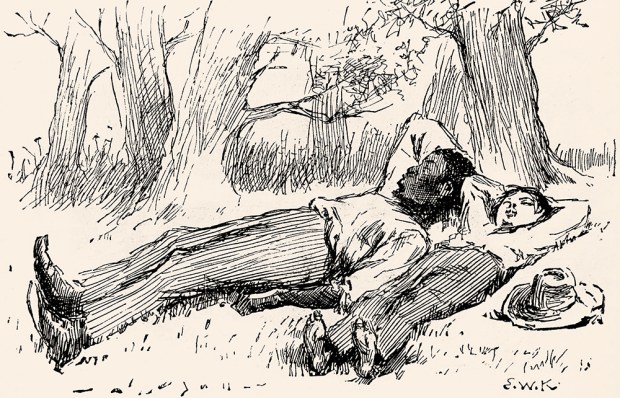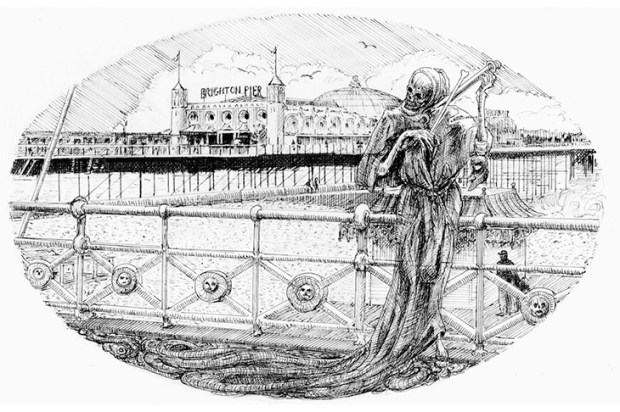The novelistic tube or nozzle through which experience is squeezed in order to be bletted on the page in words, and in turn create the illusion of experience in the reader, is a slender one. Novelists have often perversely focused on the narrowest of lives. Xavier de Maistre wrote an entire travelogue in the 1790s about 42 days spent in his room, while Jean-Philippe Toussaint’s debut novel in 1985 was about a character refusing to leave his bathroom.
These spectacular exercises in technique present a parallel to what has always been the case, the existence that contains, as it were, few plot options. Many of the great 19th-century novels are about the way their narratives have to fall into ruts, because the lives they chronicle have so few real choices. Often these are about women, perhaps none more powerful than Margaret Oliphant’s Miss Marjoribanks, about a supremely intelligent, able woman unable to take possession of the plot she deserves.
For some reason these stories of limited lives are rarely about the actually physically restricted. Over the past 15 years, Adam Mars-Jones has been writing a series of colossal novels, of which Caret is the third, about precisely that. They are some of the oddest and most technically entrancing novels to be published this century.
The narrator is John Cromer, born after the second world war in an English suburban setting. The two earlier books, Pilcrow and Cedilla, cover his childhood and young adulthood, including a realisation of his homosexuality, the development of a severe disability and his dependence on a wheelchair, the transformation worked by Indian religion and an immense bust-up with his parents. This is brought about by the discovery of a gay porn mag entitled Jeremy which, insultingly, in Proust’s phrase, ne lui plaisait pas et n’était pas son genre. Expelled for a forgotten gift of soppy porn he didn’t even like, Cromer establishes himself in Cambridge, in a positive whirlwind of tiny adventures.
The novel culminates in a Christmas reunion of sorts, marked by a loving and detailed account of a favourite family board game, Waddington’s Careers (a real game). Before then, Cromer goes in lavish detail into what his day-to-day life consists of: the effort it takes to live, to form friendships, to engage with the beginnings of a network of gay society, both politically minded and sexually active. It’s intricate and richly comic and accumulates into a statement of maddening power.
Mars-Jones is taking an immense risk here and in the previous books. There’s no doubt that when a novelist has previously ventured into the territory of a narrator minutely describing his own physical movements, interspersed with extensive speculation and spiritual cogitation, it has usually been for the purpose of rather mean-spirited mockery. One thinks of Augustus Carp lovingly describing his unmatched skill in playing Nuts in May, due to his painfully flat feet.
Cromer tests our patience, but almost never our sympathy, with his extensive digressions on whether undertakers, even if quite sexy, should ever have suntans; the sanity of parrots; when ‘mummy’ becomes ‘mum’ as a form of address, and a thousand other things. But these cheerful meanderings are what he calls ‘apophatic’, the attempt to describe something by eliminating the irrelevant. (Cromer’s example is Auden’s question whether the odour of love reminds one of llamas.) The piling up of intricate everyday detail brings the reader closer to the ineffable and ultimately unstatable truth.
At least that’s the suggestion. I like my patience being tested, or what is patience for? And many of the greatest novels have something exasperating about them, from Clarissa to Bouvard et Pécuchet to Der Zauberberg. In his remarkably wilful and unfailingly interesting career, Mars-Jones has often tried to persuade us into a particular and perhaps unaccustomed reading practice. His first book, Lantern Lecture and Other Stories, works best if the reader sets it down frequently, sipping from it like a dowager. His remarkable circling memoir of his father, Kid Gloves, requires to be read in the opposite way, in a single long sitting, flirting with the experience of boredom it finally admits characterised encounters with its subject. His thrilling short novel of sexual obsession, Box Hill, must not be set down before finishing it: the evocation of inescapable ownership must work on the reader as well.
In these latest sunny, ludicrous, challenging novels, the readerly experience might best take place over a year or more, ten pages a day, not missing a single word – like Dietrich Bonhoeffer in his prison cell with nothing to read but that exasperatingly intricate and fascinatingly boring novel, Adalbert Stifter’s Witiko. It is much more like writing a novel, adding one tiny detail on top of another, than reading one. Some of those details are excruciatingly funny, such as Cromer in his wheelchair getting on top of the challenges of gay cruising in public toilets, and some are detailed accounts of Hindu mysticism or how annoyingly heavy the doors of public phone boxes were.
In a book so dedicated to the period moment and mostly so gloriously evocative, I think one might be justified in pointing out the occasional anachronism. Mr Humphries of Are You Being Served was not yet known to the world in 1973. Nor was Fybogel, the constipation cure. (There is so much about bowel movements that one childishly hopes Mars-Jones will one day call a future punctuation-themed volume Colon.) On a point of accuracy, a twinset is not a ‘matching skirt and cardigan’ but a matching cardigan and jersey underneath. Come to think of it, those corrections sum up the unique atmosphere of the whole immense project rather well.
Got something to add? Join the discussion and comment below.
Get 10 issues for just $10
Subscribe to The Spectator Australia today for the next 10 magazine issues, plus full online access, for just $10.
You might disagree with half of it, but you’ll enjoy reading all of it. Try your first month for free, then just $2 a week for the remainder of your first year.














Comments
Don't miss out
Join the conversation with other Spectator Australia readers. Subscribe to leave a comment.
SUBSCRIBEAlready a subscriber? Log in